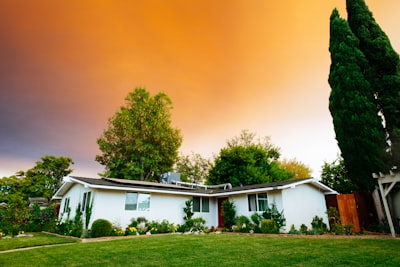City living seems to have become more and more unpredictable if not outright dangerous. Unrest and large scale protests that devolve into riots, arson, fist fights and even shootings. You would imagine a lot of business owners in the central districts of cities like Seattle are now considering their options.
Meanwhile, with today’s communications technology, it’s becoming apparent that a great proportion of professionals can get their work done from virtually anywhere, using just their internet connection and a few simple tools. Counter-urbanization is about to set in, if it hasn’t already started. People are able to explore alternatives to living in the city, and this is creating changes in living location preferences.
Two of the key reasons you might have moved to the city in the past would have been employment opportunities, and the abundance of choice the city offers. Restaurants, social gatherings, networking, luxuries and conveniences of all sorts. Thanks to Covid, and now the growing unrest to boot, you can no longer comfortably enjoy those. If you are fortunate enough to live in the countryside, you have the luxury of mobility, safety, access to green spaces and fresh produce, and you generally suffer fewer restrictions generally.
To top it off, the cost of living in the countryside is far lower than in cities. You have all the liberty and open space, and you pay less for your accommodation. So all in all, it’s obvious that more people are going to take to the suburbs, to the countryside, and perhaps even off-grid altogether. Why pay a fortune to be holed up in an expensive, oftentimes small apartment in a big metropolis, when you can’t enjoy the fittings that you came to the city to enjoy in the first place? If you were ‘fortunate’ enough to have an apartment in Seattle, LA, New York, chances are today is a totally different picture from a year ago, and you’ll probably want to get away from the downtown area.
It’s no surprise that off-grid living, mobile home living and the tiny homes movements have skyrocketed — and they are only going to continue to do so. Why? Because a lot of people are anticipating even further troubles: there’s a good change we’ll have another wave of the virus, meaning another excruciating period of lockdown — and a lot of people have had more than enough of being holed up inside; particularly in a large city with no access to green space and fresh air.
As the issues compound another issue looming on the horizon is further disruptions to the food supply. While this might have been manageable the first time around, the social tensions are now far larger, people’s fuses are a lot shorter, and the unrest developing from further strains to our way of life would be even larger.
Where does this leave the cities? Assuming the ball keeps rolling, i.e. we have a second wave and the various protests also accelerate, there will be bigger outflows from the cities. The more affluent; the knowledge workers. People who are not tied to a physical location. This will mean a lot of the de-urbanizing population will take a big chunk of the tax revenue with them.
This will of course have put a compounding strain on the city economy. With less tax revenue, you’ll have deteriorating service, infrastructure and security in the city. This will probably exacerbate social tensions even further. That said, if we end up in a situation with ever more chaos in the cities, we shouldn’t assume that all the knowledge workers now in exodus would be welcome with open arms out in the sticks. Small towns want to be ‘bugout locations’ and they don’t want to host the refuge for the influx of city dwellers getting out of dodge. They also don’t want more Covid cases, they don’t want to import the various problems from the big cities.
While the increased digitalization of work brings about many positives, you can see signs of people getting tech-fatigue. Zoom, Skype, Slack and Google Meet are all useful, but at the end of the day, there’s only so much virtualization, digitalization and artificiality we are going to want. Too much screen time is not real life. There are tendencies that suggest that the Digital-Z’ers might not actually appreciate the everything-online-all-the-time ethos. Living a real life in the offline world may become more attractive.
Are you moving out into the sticks? Will the turmoil we’re seeing in the cities blow over? Let me know what you think. By the way, I haven’t asked this recently, but feel free to propose topics for me to cover — email me on podcast@nyman.media.
Supporters of taim.io.










